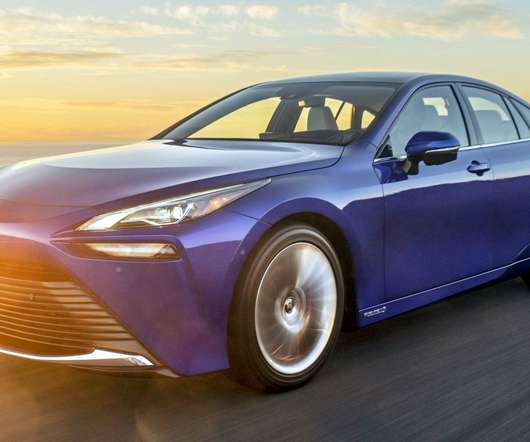Toyota broadly outlines next-generation Prius; developing wireless inductive charging for the plug-in model; bullish on hydrogen
Green Car Congress
AUGUST 28, 2013
Toyota’s next-generation Prius will deliver significantly improved fuel economy in a more compact package that is lighter in weight and lower in cost, according to Toyota Motor Corporation (TMC) Managing Officer Satoshi Ogiso. The next Prius will feature improved batteries with higher energy density. —Satoshi Ogiso.

























Let's personalize your content